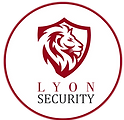Comprehensive Overview of Security Options in South Africa
- Lyon Security

- Jul 28
- 4 min read
Updated: Aug 10
In today's increasingly complex environment, security has become a top priority for individuals, businesses, and government entities across South Africa. With rising crime rates, the need for comprehensive security measures has never been more pressing. This blog post outlines the various security solutions available in the South African market, focusing on customized options that cater to diverse needs.
Custom Security Options
Custom security options are essential for tailoring protection to fit specific environments, be it residential areas or commercial properties. Employing a one-size-fits-all approach can leave gaps in security that criminals will exploit. Therefore, understanding and implementing the right mix of security measures are crucial.
Types of Security Solutions
There is a diverse range of security solutions available in South Africa, including, but not limited to:
Physical Security Measures: These involve tangible barriers or devices that protect facilities. Common examples include fencing, locks, and security doors.
Electronic Security Systems: This category includes alarms, surveillance cameras, and access control systems. Advanced technology allows for round-the-clock monitoring and quick response times.
Guard Services: Professional security personnel can deter crime and respond to incidents on-site. Many businesses hire security guards for this reason.
Mobile Patrols: For businesses that require flexible security, mobile patrols can offer surveillance without the need for fixed security posts.
Cybersecurity Solutions: As more businesses operate online, protecting digital assets has become paramount. Cybersecurity measures include firewalls, data encryption, and secure cloud storage.

What are the 5 Basic Principles of Security?
Understanding the fundamental principles of security can help ensure that the measures you implement are effective. Here are the five basic principles of security:
Confidentiality: Ensuring that sensitive information is not accessed by unauthorized individuals is critical. Data protection measures, like encryption and user authentication, help maintain confidentiality.
Integrity: This principle focuses on maintaining the accuracy and completeness of data. Measures such as access monitoring and encryption play crucial roles in preserving data integrity.
Availability: Users must have access to information and resources when needed. Employing backup systems and disaster recovery plans helps ensure physical and digital assets remain available.
Accountability: Every individual should have a clear responsibility when it comes to data or security management. This can be established through user logs, audits, and clear policies.
Security Through Layering: Employing multiple security measures provides a more robust defense. This concept is often referred to as "defense in depth," whereby layers of protection work together to enhance overall security.

The Role of Technology in Modern Security Solutions
Technology has transformed the way security is managed today. With advancements in software and hardware, security solutions are more efficient and effective than ever. Some significant technological advancements include:
Smart Cameras: These cameras can identify faces, recognize license plates, and differentiate between people and objects, providing valuable data for crime prevention.
Mobile Apps: Users can monitor security systems remotely through dedicated apps, allowing for instant alerts and real-time footage.
Artificial Intelligence: AI can analyze data from security events, offering predictive analytics that can help anticipate potential threats.
In South Africa, businesses have begun to appreciate how essential technology is in enhancing their security measures. The advent of smart homes and automated control systems represents a leap forward in personal security options.
How to Choose the Right Security Solution
Selecting the right security solution involves careful consideration of a few key factors:
Assess Your Needs: Understand your specific security risks and relate them to the type of security solutions available.
Budgeting: Determine how much you can invest in security measures. Balance cost against the level of security you aim to achieve.
Research Options: Look into various service providers and products. Read reviews, seek recommendations, and compare features.
Integration Capabilities: Ensure that the chosen solution can integrate with existing systems. This integration can expand capabilities without total replacement.
Seek Expert Advice: Engage with security consultants or experts who can offer tailored recommendations based on your specific situation.

Advancements in Cyber Security
In our interconnected world, cyber threats are increasingly common. South Africa has not been immune to these challenges. Businesses must implement robust cybersecurity solutions to guard against data breaches and other cybercrimes. Here are some recommended approaches:
Regular Training: Ensure employees are trained on cybersecurity awareness. Many breaches result from human error, so educating staff is vital.
Incident Response Plan: Prepare for potential breaches by having an incident response plan in place. This plan should include specific protocols for various types of incidents.
Regular Updates: Keeping software updated ensures that vulnerabilities are patched, mitigating the risk of successful cyberattacks.
As criminals develop more sophisticated methods, staying ahead of potential threats in the cyber realm is paramount for individuals and businesses alike.
The Importance of Residential Security
For individuals, residential security options are crucial in creating a safe living environment. Houses and apartments can implement various measures, including:
Alarm Systems: A quality alarm system deters thieves. An alarm that signals the police can offer peace of mind.
Smart Doorbells: These devices enhance visibility at entrance points, allowing homeowners to see and communicate with visitors remotely.
Neighborhood Watch Programs: Community involvement can significantly enhance security by encouraging residents to look out for one another.
Investing in residential security is not just about preventing crime; it’s about fostering a sense of safety for families and peace of mind.
Final Thoughts
Security solutions range vastly across different sectors and environments. Whether you are protecting a business or ensuring your home is secure, understanding the various options is key. Each situation is unique, and implementing a customized strategy ensures you effectively mitigate potential risks. For more insights on security solutions, a security solutions overview is always helpful.
In South Africa, the security landscape continues to evolve, introducing new technologies and innovative approaches. By staying informed and proactive, individuals and businesses can safeguard their assets and create a safer community for everyone.





Comments